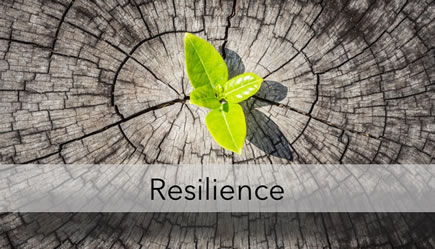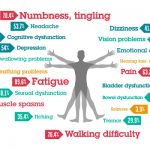
If you, or any of your loved one, is living with MS, you have a good idea of the uncertainties and the difficulties it brings. The impossibility to move and to perform tasks, which others easily do, often makes one fall in the traps of despair. One way to feel better is to build resilience.
Resilience is the ability to recover quickly after a setback or adverse circumstance. This means that to cope with MS and to live strong, you have to recover fast from the negative effects it brings. The American Psychological Association (APA) defines resilience as the “process of adapting well in the face of adversity, trauma, tragedy, threats or significant sources of stress.”
Methods to Build Reliance
The Resilience Scale published in 1993 in the Journal of Nursing Measurement explains the five main traits that are covered by resilience. These are:
- Self-reliance
- Meaning
- Equanimity
- Perseverance
- Existential aloneness
Read on to understand each of these in detail.
- Self-reliance
Being self-reliant is the concept of being in control of life’s circumstances. It is the idea of taking control of life’s challenges and finding solutions to its problems. However, self-reliance is not having perfect control over every aspect of life. it is a feeling of confidence that you can handle those challenges and find solutions to the problems.
Teresa Wright-Johnson is a retired parole officer and an MS blogger in Pennsylvania, USA. She was diagnosed with MS at the age of 42, in 2014. She describes the unpredictability of her disease in these words:
“Not being able to control what happens and not being able to control how you feel— that’s what I struggle with,” she says. “When you don’t feel well, it changes the course of your entire day.”
MS patients do feel a loss of control over their destinies. But it does not mean that they begin to rely on others. An MS patient must be self-reliant to build resilience.
- Meaning
Don’t become the ship floating in the middle of an ocean. Find the purpose and objective of your life, then work to achieve it. Your disease will become a hurdle in your way. Don’t let hurdles stop you from doing what you want.
You must stay focused on your goals. The disease will become easier to manage.
Gretchen Mathewson tells her experience as an MS specialist at Mount Sinai Hospital in New York City that patients who deal best with an MS diagnosis are those who have a strong sense of purpose.
“If you’re a single mother, a single dad, you’re running a large company, or you simply have to get back on that delivery route each day, keep it in perspective and continue moving forward,” she says.
She is a strong believer of the fact that finding a new purpose in life is crucial if MS leads no room to perform a meaningful task.
Quoting her:
“Even if you’re in a wheelchair and only have use of one arm, you could help teach someone to read… In that act of giving, you stay connected in a very real and profound way with society. And I think staying in society is really important.”
- Equanimity
It is “mental calmness, composure, and evenness of temper, especially in a difficult situation.” What happens when people refuse to understand what you go through and put forward their demands and advices? Do you lose your mind when others lose theirs? Can you handle difficult times? Think about it.
- Perseverance
Perseverance is to keep trying, even when the circumstances go against you and get tough. Regardless of whatever happens to you in your life, you must keep trying to live a healthy life with MS… Wright Johsnson was diagnosed with an aortic valve defect when she was one year old. She was later diagnosed with MS. She is now host to two chronic health conditions. Despite these conditions, she is willing to move forward with her life.
Showing a positive attitude, she says, “I’ve always had this attitude, ever since I was a little girl, that I’m going to beat the odds. If someone tells me I can’t do something, then I just will it in my mind that I can do it.”
Don’t just push through. Listen to your body and to your emotions instead. Take the sleep you need, but keep working towards success.
- Existential aloneness
You are on a personal journey, and you should experience life alone sometimes. It is fine to sit with your MS challenges and spend some time with those difficulties. “It’s okay to sit with it for a little bit,” Lynn says. But don’t let your difficulties take over your thoughts.
Don’t let anyone define your place in this world. Remember, that only “…you have to figure out what you need to do to get through it.”
Follow these points to build resilience and live a content life with MS.






